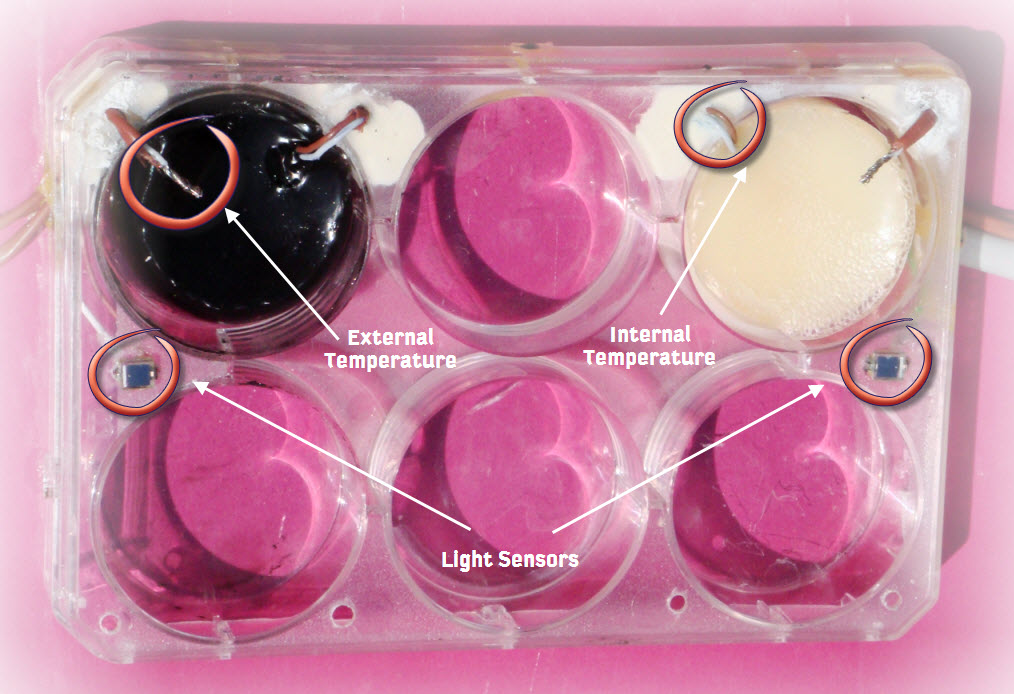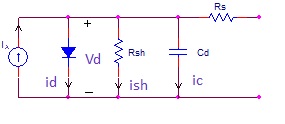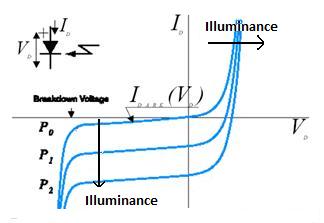Team:Valencia/WB
From 2010.igem.org
Time goes by...
(El tiempo pasa...)
Follow us:

Our main sponsors:

Our institutions:

Visitor location:
White-Blue Screening
In order to study the capability of the cultures to absorb energy coming from sunlight depending on their coloring, we are going to measure the temperature that the cultures reach compared with others control know-color cultures. These temperatures are measured by a system of thermocouples.
For this objective, it has been designed a dish in which our E. Coli and yeast cultures are studied. There are as well two reference cultures: one entirely black and another totally white. The cultures are exposed to radiation coming from sunlight. All cultures are previously kept in constant and known temperature.
In order to make sure that the temperature differences among the cultures are due only to albedo effect, two strategies have been designed.
- Several light sensors have been laid out symmetrically. The signal received by these sensors is transmitted to an electronic circuit which produces an electric response that finally ends up in the datalogger.
- Several thermocouples are arranged surrounding the cultures to make sure that the external temperatures are equal for all of them. It has been used a recording system quite similar to the Red House one Recording Systems Link.
Therefore, any temperature difference between the cultures has to be produced by the capability of absorbing light. This temperature is then measured by another thermocouple inserted into the culture. Furthermore, all this data is recorded and shown in real time through a computer screen.
Light sensor
With this electronic circuit we aim to adecuate the signal coming from the light sensors (photodiodes). This will make the signal useful to real time adquisition and ionterpretation.
A photodiode can behave in tho very diferent ways, depending on the conection configuration: photoconductive or photovoltaic mode. We are interested in the first one, because it make posible a precise and stable relationship between the energy of the incident radiation and the output current.
The following figure shows the equivalent circuit used in the simulations and the caracteristic curve
 "
"


